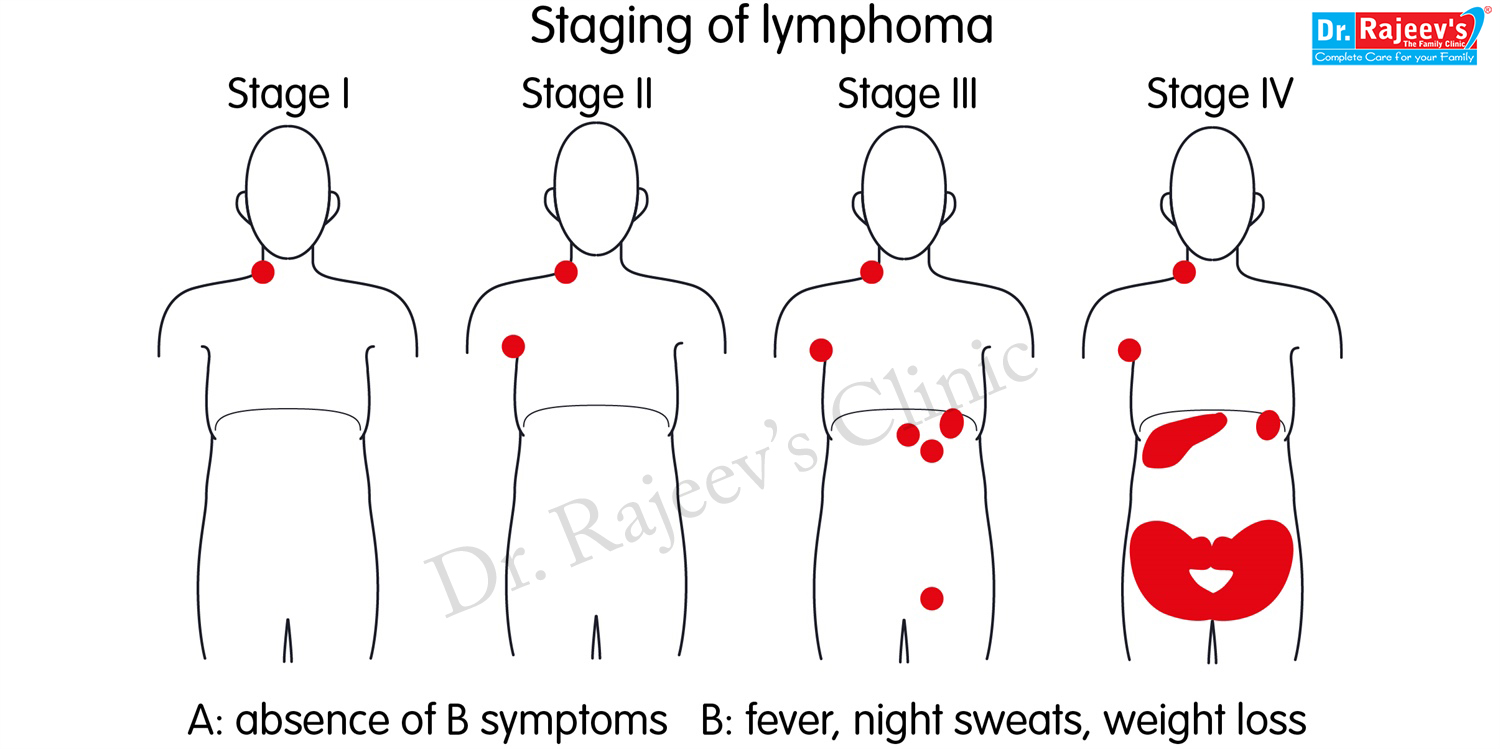This is a cancer of the lymphatic system, which is part of our immune system.
In Hodgkin’s lymphoma, cells in the lymphatic system grow abnormally and may spread beyond the lymphatic system. As Hodgkin’s lymphoma progresses, it compromises your body’s ability to fight infection.
Hodgkin’s lymphoma is one of two common types of cancers of the lymphatic system. The other type, non-Hodgkin’s lymphoma, is far more common.

CAUSES OF HODGKIN’S LYMPHOMA
It’s not clear what causes Hodgkin’s lymphoma.
Doctors know that most Hodgkin’s lymphoma occurs when an infection-fighting cell called a B cell develops a mutation in its DNA. The mutation tells the cells to divide rapidly and to continue living when a healthy cell would die. The mutation causes a large number of oversized, abnormal B cells to accumulate in the lymphatic system, where they crowd out healthy cells and cause the signs and symptoms of Hodgkin’s lymphoma.
Various types of Hodgkin’s lymphoma exist. The type is based on the types of cells involved in your disease and their behavior. Your type determines your treatment options.
CLASSICAL HODGKIN’S LYMPHOMA
Classical Hodgkin’s lymphoma is the more common type of this disease. It can be broken down further into subtypes. People diagnosed with classical Hodgkin’s lymphoma have large, abnormal cells called Reed-Sternberg cells in their lymph nodes.
Subtypes of classical Hodgkin’s lymphoma include:
- Nodular sclerosis Hodgkin’s lymphoma
- Mixed cellularity Hodgkin’s lymphoma
- Lymphocyte-depleted Hodgkin’s lymphoma
- Lymphocyte-rich classical Hodgkin’s lymphoma
LYMPHOCYTE-PREDOMINANT HODGKIN’S LYMPHOMA
This much rarer type of Hodgkin’s lymphoma involves large, abnormal cells that are sometimes called popcorn cells because of their appearance. Treatment may be different from the classical type. People with this type of Hodgkin’s lymphoma may have a better chance of a cure when the disease is diagnosed at an early stage.
RISK FACTOR
Factors that increase the risk of Hodgkin’s lymphoma include:
- Your age.Hodgkin’s lymphoma is most often diagnosed in people between the ages of 15 and 30, as well as those older than 55.
- A family history of lymphoma.Having a close family member who has Hodgkin’s lymphoma or non-Hodgkin’s lymphoma increases your risk of developing Hodgkin’s lymphoma.
- Your sex.Males are slightly more likely to develop Hodgkin’s lymphoma.
- Past Epstein-Barr infection.People who have had illnesses caused by the Epstein-Barr virus, such as infectious mononucleosis, are more likely to develop Hodgkin’s lymphoma than are people who haven’t had Epstein-Barr infections.
- A weakened immune system.Having a compromised immune system, such as from HIV/AIDS or from having an organ transplant requiring medications to suppress the immune response, increases the risk of Hodgkin’s lymphoma.
SYMPTOMS
Hodgkin’s lymphoma signs and symptoms may include:
- Painless swelling of lymph nodes in your neck, armpits or groin
- Persistent fatigue
- Fever and chills
- Night sweats
- Unexplained weight loss — as much as 10 percent or more of your body weight
- Loss of appetite
- Itching
- Increased sensitivity to the effects of alcohol or pain in your lymph nodes after drinking alcohol
HOMEOPATHIC TREATMENT FOR HODGKIN’S LYMPHOMA
The scope of Homeopathy for cancer management varies depending on the type of cancer, stage of cancer and the general health of the patient. Following are some of the aspects of Cancer management with Homeopathy:
- One of the most distressing complaints associated with some varieties of Cancer is the agonizing pain. Conventional medicines can provide pain relief but only to a certain extent and these medicines are not without any side effects. Moreover, there is always a restriction to the dosage that can be safely administered to the patient. The advantage of administering Homeopathic medicines in such cases is that there can be effective pain control without inducing any side effects.
- Homeopathy can help in improving the general wellbeing and vitality of the patient.
- Conventional treatment options for cancer (chemotherapy, radiotherapy, etc.) are associated with distressing side effects and homeopathy can play a definitive role to counter these side effects.
- The diagnosis of cancer often leaves the patient with a sense of depression, anxiety and fear. The treatment may induce additional irritability, impatience and mood fluctuations. Homeopathy can influence the psyche of the patient and help him to deal with these emotions in a better way.
- Homeopathic medicines may also have a role to play in controlling the pace at which the disease increases and spread of the disease to other organs.
Homeopathic medicines can also be administered along with the allopathic medicines.
Homoeopathic Medicine:
Cadmium iod, Radium brom, Silicea, Sulphur
RL-


